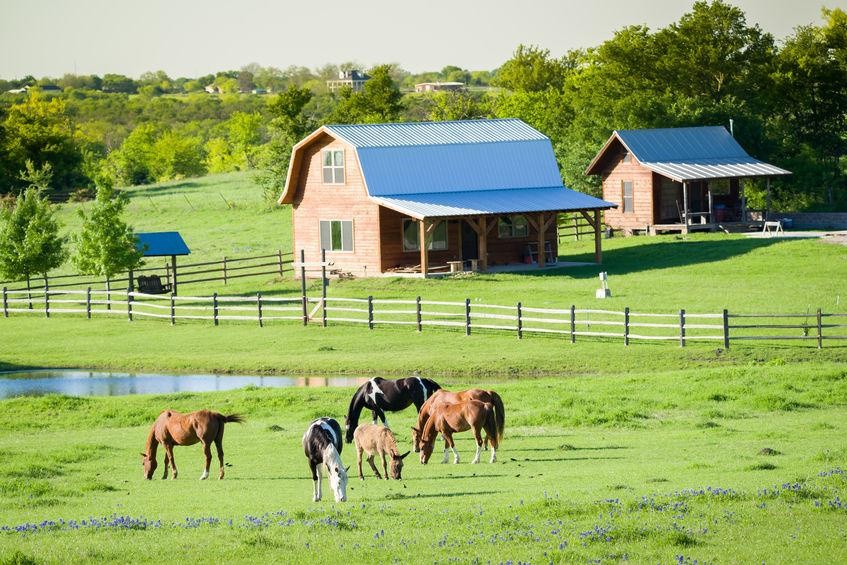
Sustainability in cattle farming is now a top priority. There have been battles over several global issues like resource depletion, food security, and climate change.
Healthy animals play a crucial role in making cattle farming more sustainable. It improves productivity, reduces environmental impact, and enhances animal welfare. This article delves into various ways healthy animals positively influence the sustainability of cattle farming.
Why Are Healthy Animals Important for a Sustainable Environment ?
Animal husbandry becomes more sustainable when they are in great shape. Below are some of the reasons why it has a positive effect on sustainability.
Improved productivity and efficiency
Healthy animals are the foundation of productive and efficient cattle farming systems. Disease-free and well-nourished cattle exhibit higher growth rates, better feed conversion efficiency, and increased reproductive success.
Farmers can achieve higher yields with fewer inputs, reducing their overall environmental footprint. Healthy animals also lead to reduced mortality rates, reducing the need for replacements and increasing the overall productivity of the herd.
Reduced antibiotic use
A key component of sustainable cattle farming is minimizing the use of antibiotics to combat diseases. Healthy animals aren't too susceptible to infections. This reduces the need for prophylactic antibiotic treatment.
By limiting the routine use of antibiotics, farmers will manage the risk of antimicrobial resistance, which is often a serious threat to the health of humans and animals. Responsible antibiotic stewardship helps preserve these drugs' effectiveness for treating critical illnesses in animals and humans.
Lower environmental impact
Healthy cattle produce fewer greenhouse gas emissions and manure pollutants per product unit. Ill animals often exhibit reduced feed efficiency and generate more waste, leading to higher environmental impacts.
Additionally, healthy animals are less likely to contaminate water sources with pathogens, reducing environmental risks. By maintaining the health of their herds, farmers can minimize the contribution of cattle farming to climate change and resource degradation.
Improved animal welfare
Promoting the well-being of cattle is not only ethically responsible but also contributes to greater sustainability. Animals in good health experience less stress and discomfort, resulting in improved behavior and reduced aggression.
Enhanced welfare is associated with increased productivity, as content animals are more likely to express natural behaviors and achieve optimal growth rates. Moreover, healthy cattle are better equipped to cope with adverse environmental conditions, like extreme weather events.
Enhanced genetic selection
Healthy animals form the basis for effective genetic selection programs. Farmers can develop more robust herds adapted to environmental conditions by focusing on breeding from disease-resistant and resilient individuals.
Genetic improvement for disease resistance reduces the reliance on medical interventions, thereby contributing to the long-term sustainability of cattle farming.
Breeding healthy cattle can also lead to enhanced tolerance to environmental stressors. This reduces the need for energy-intensive climate-controlled housing and management practices.
Lower input costs
Healthy animals often require fewer inputs, such as feed supplements, vaccines, and veterinary treatments. This reduces the economic burden on farmers and lowers the environmental impact associated with the production and use of these inputs.
With lower input costs, cattle farmers can achieve better profit margins and invest in sustainable practices and technologies. It also promotes the overall sustainability of their operations.
Decreased zoonotic disease risk
Keeping healthy animals is crucial for preventing the transmission of zoonotic diseases. Especially zoonotic diseases that can be transmitted from animals to humans.
Outbreaks of zoonotic diseases pose significant public health risks, as they can lead to widespread illnesses and economic losses.
By focusing on animal health and biosecurity measures, cattle farmers can reduce the potential for disease spillover to humans. It contributes to environmental and societal sustainability.
Is Cattle Farming Profitable ?
Cattle farming can be profitable, but it highly depends on various factors, including the scale of the operation, market conditions, input costs, and management practices. Also, animal nutrition and health are important. Profitability in cattle farming is influenced by factors such as:
Market demand
The demand for beef and dairy products affects the prices cattle farmers can fetch for their products. High demand can lead to better prices and increased profitability.
Input costs
The cost of feed, veterinary care, labor, and other inputs impact the overall expenses of cattle farming. Efficient management of input costs is crucial for maintaining profitability.
Production efficiency
Productivity and efficiency in cattle farming, such as good genetics, proper nutrition, and effective breeding programs, are essential. They can lead to higher yields and improved profitability.
Environmental factors
Weather conditions, climate variations, and environmental challenges can affect cattle health and productivity, impacting profitability.
Government policies
Government subsidies, trade agreements, and regulations can also influence the profitability of cattle farming.
Scale of operation
Larger operations can benefit from economies of scale, potentially reducing costs and increasing profitability.
Conclusion
While cattle farming has the potential to be profitable, it also carries inherent risks and uncertainties. Healthy animals are vital components of sustainable cattle farming systems. They enhance productivity and efficiency, reduce the environmental impact, improve animal welfare, and lower input costs for farmers. Cattle farmers will contribute to the long-term viability of their operations when their herds are in great condition.
© 2026 NatureWorldNews.com All rights reserved. Do not reproduce without permission.





